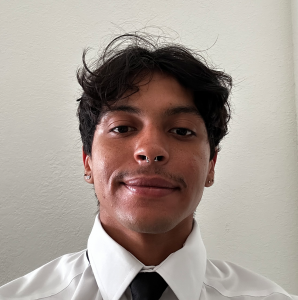
On Sunday, December 8, 2024, 53 years of autocratic Assad family rule in the state of Syria ended. At the vanguard of this offensive, following a civil war that has been ongoing since 2011, is the Sahafi-Jihadist group Hay’at Tahrir al-Sham otherwise referred to as HTS. Several notable international leaders and diplomatic leaders have voiced their openness to regime change. Angela Rayner, Deputy Prime Minister of the UK, told Sky news, “…if the Assad regime has fallen, I welcome that.” (Sky News). Additionally, Emmanual Macron, President of France, tweeted, “The barbaric state has fallen. At last.” (X). During the Syrian Civil war, its estimated that over half of Syria’s population had been displaced, and according to Al Jazeera, Turkey’s interior ministry reports nearly 31,000 Syrians have returned home since his collapse (World Vision, Al Jazeera 1). Syria and its civil war before and after Assad had the involvement of several countries that all have competing interests in the direction of the country including Iran, Turkey, Russia, the U.S., and Israel (BBC 1). Syria’s political future is dependent on HTS’s intentions and capabilities, pressure from other groups and factions within the country, and the action of foreign powers who have been involved in the country’s recent history. (BBC, 2). HTS is a jihadist group that has its roots as an affiliate of Al-Qaeda, although officially claiming to cut ties as early as 2016 (NCTC).
At the head of post-Assad Syria is the founder of HTS, Abu Mohammed al-Jolani (BBC, 3). Abu Mohammed al-Jolani has been registered as for UN Al-Qaida sanctions since 2013 (UN Security Council 1). Al-Jolani’s background as founder of HTS leads back to the founding of Jabhat al-Nusra or Nusra front in 2011 as an affiliate group of al-Qaeda (CSIS).Prior to joining al-Qaeda affiliates he would fight in the 2003 US invasion of Iraq, where in 2005 he was imprisoned in Camp Bucca and would become affiliated with leaders of al-Qaeda and ISIS (BBC, 3). Al-Jolani would sever ties with al-Qaeda due to political and strategic differences in the organization (CTC West Point). In July 2016, al-Jolani would publicly dissolve Nusra front and establish Jabhat Fatah al Sham (FTS), a group that had cut off “external ties” or public communication with al-Qaeda (CSIS). Despite this, in 2018, HTS would be labeled a terrorist organization by the U.S. state department (U.S. Department of State 1). The UN security Council would back up these claims in 2018, stating, “8 Member States assess that HTS, and its components still maintain contact with Al-Qaida leadership” (UN Security Council 2). HTS would come to administer and hold a “position of strength” in the Idlib province of Syria (UN Security Council 2). Coupled with reported human rights abuses in the Idlib province, HTS and al-Jolani have worked hard to change public perceptions of the organization (BBC, 3). Amnesty International have similarly condemned HTS alongside the Assad regime for its siege tactics and treatment of prisoners (Amnesty International). HTS’s terrorist designation, however, leads to public concerns about the direction of the future Syrian state, Reuters reports, “There is widespread apprehension among Syrians that the new administration will gravitate towards hardline religious rule, marginalising minority communities and excluding women from public life.” (Reuters).
These concerns for the transition to a new Syrian government and regime, are being addressed by HTS, as al-Jolani, now going by his real name, Ahmed al-Shara, held “good and very productive” talks with Senior U.S. diplomats (Reuters). Syria has been declared a state-sponsor of terrorism, and subsequently subject to the corresponding sanctions, since December 29, 1979 (U.S. Department of State, 2). Additionally, HTS officers and correspondents have been reaching out to Israeli publications as well. Speaking to Times of Israel, an HTS officer reported being open to “friendship with everyone in the region- including Israel,” as well as being open to diplomatic channels with the Kurds in the northern region of Syria, although not supporting their plans of secession to create their own state (Times of Israel). The Jerusalem Post would also report from a Syrian broadcast, that al-Jolani opposed any foreign intervention, both from Iran and Israel. And that the Iranian departure marks an end to the basis for Israeli foreign intervention in the region (Jerusalem Post). Since the toppling of Assad, Israel has deployed military troops and units to the Golan Heights buffer zone between Syria and Israeli, which had been officially demilitarized since 1974 (Al Jazeera 2). These statements regarding foreign intervention with Israel and Iran may mark changes in foreign relations with the United States, with their current designation of Syria, and with as many as 900 troops in Syria (BBC, 1). Furthermore, Turkey who also has had a stake in Syria, primarily regarding Kurdish guerrilla groups may see changes in foreign relations (BBC, 1). Regarding domestic policy, Obaida Arnout, spokeswoman for women’s role in Syria, has made claims regarding the “biological and physiological nature” of women identifying them as unfit for particular government roles (Reuters). In a report by ICG, the writers reflect on these factors and rapid administrative changes the weeks following the overthrow of Assad, recommending that HTS, “…should make personnel changes in the caretaker government to ensure that the cabinet has the competence and breadth of experience necessary to make sound decisions… attempting to continue, even during a short interim period, with such a narrow governing body will exacerbate social tensions. It is also crucial that the caretaker government avoid taking divisive measures regarding cultural or religious issues” (ICG).
Works Cited:
Al Jazeera:
Al Jazeera 1, https://www.aljazeera.com/news/2024/12/27/more-than-30000-syrians-returned-home-since-al-assads-fall-turkiye-says
Al Jazeera 2, https://www.aljazeera.com/news/2025/1/16/qatars-pm-calls-on-israeli-forces-to-withdraw-from-syria-buffer-zone
BBC:
BBC 1, https://www.bbc.com/news/articles/cd75e8gdy9jo
BBC 2, https://www.bbc.com/news/articles/ce313jn453zo
BBC 3, https://www.bbc.com/news/articles/c0q0w1g8zqvo
UN Security Council:
UN Security Council 1, https://main.un.org/securitycouncil/en/sanctions/1267/aq_sanctions_list/summaries/individual/abu-mohammed-al-jawlani
UN Security Council 2 https://documents.un.org/doc/undoc/gen/n18/201/01/pdf/n1820101.pdf
U.S. Department of State:
U.S. Department of State 1, https://2017-2021.state.gov/amendments-to-the-terrorist-designations-of-al-nusrah-front/
U.S. Department of State 2 https://www.state.gov/state-sponsors-of-terrorism/
Other Sources:
Sky News, https://www.youtube.com/watch?v=jYCxtrX4Lg0
X, https://x.com/EmmanuelMacron/status/1865729789459345502?lang=en
Amnesty International, https://www.amnesty.org/en/latest/press-release/2017/11/syria-surrender-or-starve-strategy-displacing-thousands-amounts-to-crimes-against-humanity/
Times of Israel, https://www.timesofisrael.com/syrian-rebel-commander-urges-israel-to-support-uprising-strike-iran-backed-forces/
Jerusalem Post, https://www.jpost.com/breaking-news/article-833432
ICG, https://reliefweb.int/report/syrian-arab-republic/key-decisions-loom-syria-enters-new-era
CSIS, https://www.csis.org/programs/former-programs/warfare-irregular-threats-and-terrorism-
program-archives/terrorism-backgrounders/hayat-tahrir
CTC West Point, https://ctc.westpoint.edu/al-qaida-lost-control-syrian-affiliate-inside-story/